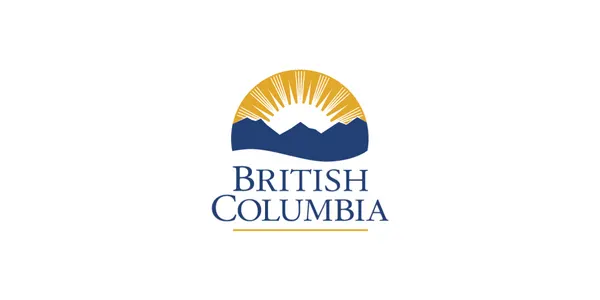
My mobile home park landlord increased my rent by more than the law allows. Do I have to go to court to enforce my rights?
Many British Columbians choose to put down roots in a mobile home park. They’re a unique and affordable option for housing. But like any living situation, problems can arise. When they do, it’s important to understand your rights and how to act on them.
What you should know
Before turning to your rights, we need to set the stage by determining which laws apply to you.
If you own your mobile home and rent the site it sits on
BC’s Manufactured Home Park Tenancy Act applies to people who own their mobile home and rent the site it sits on. It covers tenancies entered into by landlords of mobile home parks and mobile home owners.
To be protected by this law, you must have a tenancy agreement. You may have such an agreement even if you have nothing writing, or if your landlord calls the agreement something different. We explain this in our guidance on figuring out if you’re a tenant.
If you rent your mobile home and the site it sits on
Those who rent both their mobile home and the site it sits on are covered by BC’s Residential Tenancy Act. That means they have the same legal rights as other tenants in BC.
For an in-depth look at what those rights are, check out our coverage of renting.
If you own your mobile home and occupy the site it sits on
Occupying is different from renting — it’s less formal. It essentially means you’re just using the space. Those who own their mobile home and occupy the site it sits on, without a tenancy agreement in place, aren’t protected by either of BC’s tenancy laws. That means they don’t have the same legal protections as manufactured home park tenants or other tenants in BC.
Figuring out if you have a tenancy agreement isn’t always black-and-white. There are many factors in play, and you could have one even if your landlord calls it something else. We have in-depth info on determining if you’re a manufactured home park tenant.
The following information focuses on the rights of manufactured home park tenants.
BC law doesn’t use the term “mobile home.” Instead, what we would typically call a mobile home or RV falls under the definition of “manufactured home.”
The law in BC defines a manufactured home as a structure — with or without wheels — that is:
designed or built to be moved from one place to another by being towed or carried, and
is used or intended to be used as a living accommodation.
Many different structures — including manufactured homes not built to code or structures that aren’t typically considered to be manufactured homes — could fall under this definition. In deciding whether a structure is a manufactured home, an arbitrator will look at all of the surrounding circumstances.
“I moved into a mobile home park two months ago. From the get-go, everything was very informal. The park owner explained the rules to me and suggested we seal the deal with a handshake. I insisted on getting a written agreement, and printed off a template from the government’s website. I feel more at ease having the agreement in black and white.”
– Barry, Cranbrook, BC

Under the law in BC, certain terms must be included in your tenancy agreement. The agreement must say:
the date the tenancy starts
if the tenancy is for a fixed term, when it ends and whether it can be renewed
the amount of rent and when it’s due
the list of services and facilities included in the rent
the park rules (we explain what these are below)
The tenancy agreement must also speak to the terms around:
pets
rent increases
assigning or subletting
repairs
ending the tenancy
The law sets out standard terms that apply to every tenancy agreement. These terms apply even if there is no written agreement, or if they aren’t mentioned in your written agreement.
If your tenancy agreement includes “material terms”
If your landlord gives you a tenancy agreement that describes some terms as “material terms,” be very careful to comply with them. Not complying with a material term could be grounds to end your tenancy.
Sometimes, landlords try to characterize each term of a tenancy agreement as a material term. Or they characterize minor issues as material. An arbitrator won't agree a term is material just because your landlord says so. However, it’s still a good idea to comply with terms labelled as material in your agreement.
If your agreement conflicts with the law
Any term in your tenancy agreement that conflicts with the Manufactured Home Park Tenancy Act can’t be enforced. For example, your landlord can’t ask you to agree not to apply for dispute resolution as a condition of the tenancy. Nor can they require you to pay a security deposit.
Getting a rent increase can be scary and stressful. Especially if you’re already having a tough time making ends meet.
Under BC law, your landlord can only increase your rent once a year. And they must give you at least three months’ notice before the increase takes effect.
The law puts a limit on rent increases
The law puts a cap on how much your landlord is allowed to increase your rent. The maximum increase is the rate of inflation plus a proportion of some of the landlord’s operating costs.
Your landlord can’t increase your rent by more than the yearly limit (with two exceptions, explained below). This is the case even if you didn’t get a rent increase last year. Or if your prior year’s rent increase was less than the allowable amount.
See the provincial government’s website for the current annual rent increase limit.
Landlords may be able to increase your rent beyond the yearly limit
There are two situations where a landlord can raise your rent above the standard yearly limit:
if you agree to the increase in writing
if they have an order from the Residential Tenancy Branch permitting the increase
The law allows your landlord to increase your rent by an additional amount, over the standard limit, to help cover the cost of certain government levies and utility fees. They must apply to the Residential Tenancy Branch, using the proper form, for an order granting the increase (unless you agree to the increase in writing).
Similarly, they can raise your rent above the standard yearly limit to help pay for capital expenditures and expenses. Capital expenditures include substantial and essential repairs or renovations. Expenses include unexpected and extraordinary increases to their operating or financing costs for the property. The expenses must be related to the services included in your rent. Your landlord must apply for an order granting the increase, using this form (unless you provide your written consent).
See the provincial government’s website for details.
Ask your landlord for proof
If your landlord wants to increase your rent beyond the standard limit, you’re allowed to ask for proof. For example, you can ask to see a tax assessment or water utility bill to verify that there’s been an increase. It’s illegal for your landlord to punish you for requesting this information.
If your rent increase is more than the permitted amount
If you think your landlord is bumping your rent more than the law allows, you don’t have to pay it. First, confirm that the amount is excessive. Then provide the proof. For example, you can print off a page from the government’s website and show it to your landlord.
Or you can apply for dispute resolution. We explain how below, under work out problems.
“My daughter and I moved into a manufactured home park last year, after my partner and I split up. Everything was terrific, until last month. We started having issues with our water pressure. Then, our landlord notified us that our water would be cut off entirely while he did some repairs. It’s been six days, and we still don’t have water. I’ve contacted him multiple times, but he keeps making excuses and saying our service will be back on soon. My neighbour, a seasoned park resident, told me that water service is a material term of my tenancy agreement. That means my landlord has a duty to provide it or deduct money from my rent so that I can buy it myself. I raised this with my landlord, and he’s agreed to compensate me for my bottled water purchases, until our service is fixed.”
– Carrie, Richmond, BC

Under the law in BC, landlords and tenants share responsibility for repairs and maintenance under a manufactured home tenancy.
A landlord’s obligations include:
keeping the park in a reasonable state of repair
complying with health, safety and housing standards
repairing damage caused by reasonable wear and tear
A tenant’s obligations include:
repairing damage to the site or park caused by them, their guests or their pets (even if it was an accident)
keeping their site and common areas in a condition that reasonably meets health and safety standards
maintaining or repairing any improvements the tenant made to their site, unless the tenancy agreement says otherwise
If there’s something you want your landlord to repair, you can submit a request in writing. Indicate in detail what needs repairing. Ask for the work to be completed in a reasonable amount of time. If there’s a significant delay in your landlord getting to the repair, you can apply for dispute resolution. We explain how below, under work out problems.
Your landlord can’t evict you just because you had a disagreement or they want more rent. There must be a legal reason. The law describes four situations where a landlord can legally end a tenancy:
Unpaid rent. If you don’t pay your rent or utilities on time, your landlord can give you a 10-day eviction notice.
For “cause.” If you do, or don’t do, certain things (for example, if you intentionally damage park property), your landlord can give you a one-month eviction notice.
End of employment. If you were employed as a caretaker, manager, or superintendent of the manufactured home park and your employment comes to an end, your landlord can give you a one-month eviction notice.
Landlord use. If your landlord plans to convert the park, or a significant part of it, to a non-residential use or a residential use other than a manufactured home park, they can give you a 12-month eviction notice (see below).
Rent banks offer short-term financial support
If you’re facing an eviction because you can’t pay for rent or utilities, help is available. Rent banks offer financial support and connection to resources to help keep you housed. You may be eligible for an interest-free loan that you can repay over a period of up to 36 months. Here are the steps to apply.
Don’t let yourself be illegally evicted
Some park owners and landlords use their positions of power to issue evictions in unjust circumstances. This often arises in “for cause” evictions, described above. By taking an overly broad view of the law, a landlord may say they have cause to evict you when that’s not the case.
For example, say you’re performing a smudging ceremony on your manufactured home park site. Your neighbour gets flustered and complains to the park owner. The next day, he serves you with a one-month eviction notice. It says that you caused an unreasonable disturbance, in violation of the law.
Meeting the definition of an “unreasonable disturbance” requires more than a minor annoyance. In this case, smudging wouldn’t meet that threshold. This means the eviction would be illegal, and you wouldn’t have to leave.
The provincial government offers helpful guidance on this topic to help you navigate “for cause” evictions.
Under BC law, a landlord can end a manufactured home tenancy if they want to use the property for another purpose. For example, maybe the landlord is planning to close the park and sell the land to a developer.
If your landlord wants to end your tenancy under this rule, they must give you 12 months’ notice. And they must pay you compensation. The amount you get depends on whether you’re able to move your home from the site before the end of the tenancy.
Generally, your landlord must pay you $20,000 on or before the date of the notice. However, you can apply for additional compensation if:
your home isn’t capable of being moved before the end of the tenancy, and
the most recent assessed value of the home is more than $20,000.
In this case, you’re entitled to the most recent assessed value of the home minus $20,000.
Your landlord must take steps to accomplish their purpose for ending your tenancy within a reasonable period of time. So in the above example, the landlord would need to move forward with the sale of the park. If they don’t, you may be entitled to another $5,000 of compensation or the equivalent of 12 months’ rent, whichever is greater.
For more, see the provincial government’s guidelines on this subject.
A security deposit is money a landlord accepts in advance to insure them against unpredictable tenants. If you skip out on rent or damage the rental property, they keep the deposit in payment.
Under the law in BC, your landlord can’t ask for a security deposit when you enter into a manufactured home park tenancy agreement. (This goes for pet damage deposits too.) If they do, you have the right to deduct that amount from your next rent payment. Or else the landlord has to pay you back the deposit.
The law in BC allows the landlord and tenants of a manufactured home park to establish a park committee. The park committee can pass rules governing the operation of the park.
Either the landlord or a tenant can call a meeting to select a park committee. The person calling the meeting must provide two weeks’ notice to each tenant and the landlord.
If there is no park committee, the landlord can create park rules. Each tenant in the park must receive a written copy of the rules. Landlords can only change park rules once per year. And they must provide tenants with three months’ notice.
Park rules in place when a tenancy starts can be enforced like any other term of the tenancy agreement.
Certain park rules may not be enforceable
Sometimes, a landlord may create new park rules, but the rules are more like amendments to the tenancy agreement. These kinds of rules aren’t permitted under the law and aren’t enforceable.
A landlord can only create park rules that have the effect of regulating at least one of these four issues:
the rule promotes the convenience or safety of the tenants
the rule protects the condition of the manufactured home park or the landlord’s property
the rule regulates access to, or the distribution of, a service or facility
the rule regulates pets in common areas
For example, say your landlord introduces a rule that says you have to pay a late fee if you don’t pay your rent on time. This rule wouldn’t be enforceable since it doesn’t do any of the above four things. If a park landlord gives you notice of new park rules, it’s important to consider whether they’re enforceable or not.
Work out problems
Collect any documents or records you have relating to the problem. Some examples include:
a copy of your tenancy agreement
any notices you’ve received from your landlord (for example, a notice of rent increase)
any relevant emails or text messages between you and your landlord
photos or videos related to the issue (for example, if the problem involves a repair)
Print off any laws, guidelines or park rules you think are in play. If you have information from an authoritative source (like the provincial government website), include that as well.
Look up past decisions to strengthen your case
Doing a bit of research on past Residential Tenancy Branch decisions can strengthen your position. Search for cases that involve situations similar to yours. This can help you understand what arbitrators consider when making decisions, and what types of evidence can be effective.
“When my landlord told me he was increasing my rent by an amount that seemed offside, I was reluctant to raise a fuss. He can be intimidating, and I didn’t want to get on his bad side. But as a senior on disability assistance, the extra rent is going to put a strain on my budget. I was heartened to hear that a group of park residents were planning to sit down with the landlord to share their concerns about the rent increase. I decided to tag along. After hearing us out, the landlord agreed to a lower increase. I’m grateful to be part of such a supportive and engaged community.”
– Jim, Port Moody, BC

The next step is to raise the issue with your landlord directly. The sooner you do, the easier the problem can be to resolve.
Your landlord may not be aware they’ve broken your tenancy agreement. Or they may not know their legal responsibilities. Keep an open mind, and don’t jump to conclusions about your landlord’s intentions.
It’s normal to be anxious. You may feel like your landlord holds all the cards, and that you need to do what they say. But there are laws and policies to protect you, and processes to ensure your landlord follows the rules.
Give yourself some space and time to assess the situation. If you don’t feel comfortable speaking to your landlord directly, you don’t have to. You can simply skip this step, or reach out for support (see below, under who can help).
Here are some tips for achieving the best outcome:
Respectfully and calmly explain what the problem is. For example, I’m concerned about the increase in my rent.
Explain briefly the impact on you. For example, With the increase you propose it’ll be difficult for me to afford other monthly expenses.
Stick to the facts. For example, You want to increase my rent by $25 per month. This is more than what’s allowed under the law.
Suggest one or more solutions. For example, Perhaps an increase of $10 per month could work.
Ask for a response by a specific date. For example, Can you please let me know how you will be addressing this issue by [date].
Even if it takes more than one discussion, try to keep the conversation going. This shows you’re interested in finding a solution and maintaining a healthy landlord-tenant relationship.
After the conversation, make notes of what you both said. Date your notes, and describe the outcome.
If discussing the problem in person doesn't resolve it, consider writing a letter. Restate the points you made in your conversation. In your letter, explain:
how the problem is affecting the tenancy
how long the problem has existed
what you’ve done to try to fix the problem or limit its effects
what you’d like your landlord to do, and by when
If you want to confirm that your landlord received your letter, you can send it by registered mail.
If you and your landlord aren’t able to work out the problem between yourselves, you can apply for dispute resolution. This is BC’s formal process for resolving landlord-tenant disputes. Dispute resolution might sound intimidating, but you may be surprised by how accessible it is. The process is designed to be used by non-lawyers. You’re allowed to have a lawyer or advocate help you, but most people appear on their own.
While there are rules to follow, it’s less formal than court. Hearings are usually over the phone and last about an hour. You and the landlord make your case, and an arbitrator makes a legally binding decision.
The Residential Tenancy Branch is the government office that hears disputes between manufactured home park landlords and tenants. Their website walks you through the steps involved in applying for dispute resolution.
Who can help

Residential Tenancy Branch
BC government agency that helps tenants and landlords resolve problems.

Tenant Resource & Advisory Centre (TRAC)
Help and advice for tenants experiencing legal problems.

Access Pro Bono Residential Tenancy Program
Free legal assistance and representation to low- and modest-income tenants.

